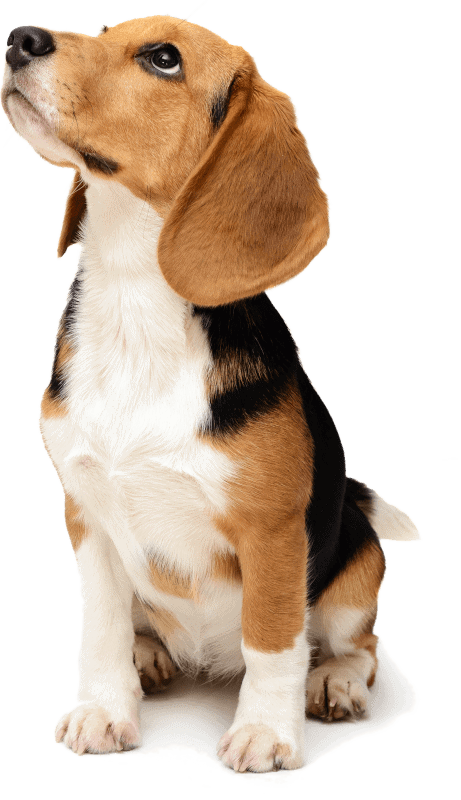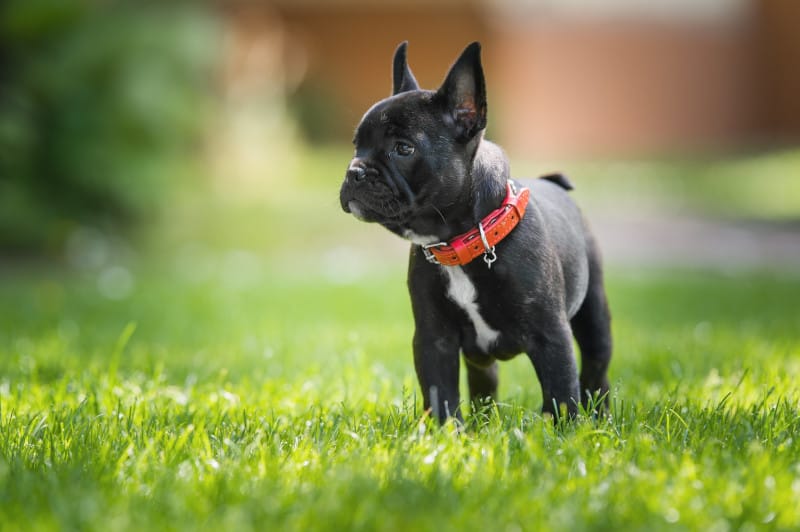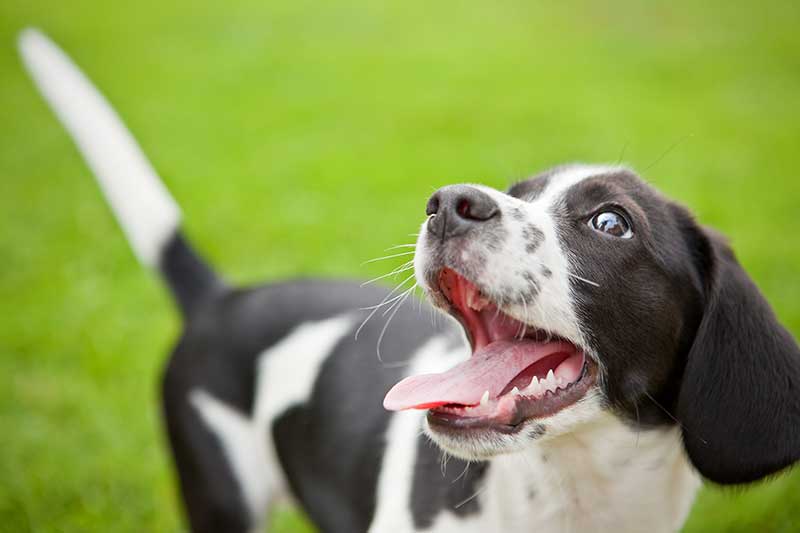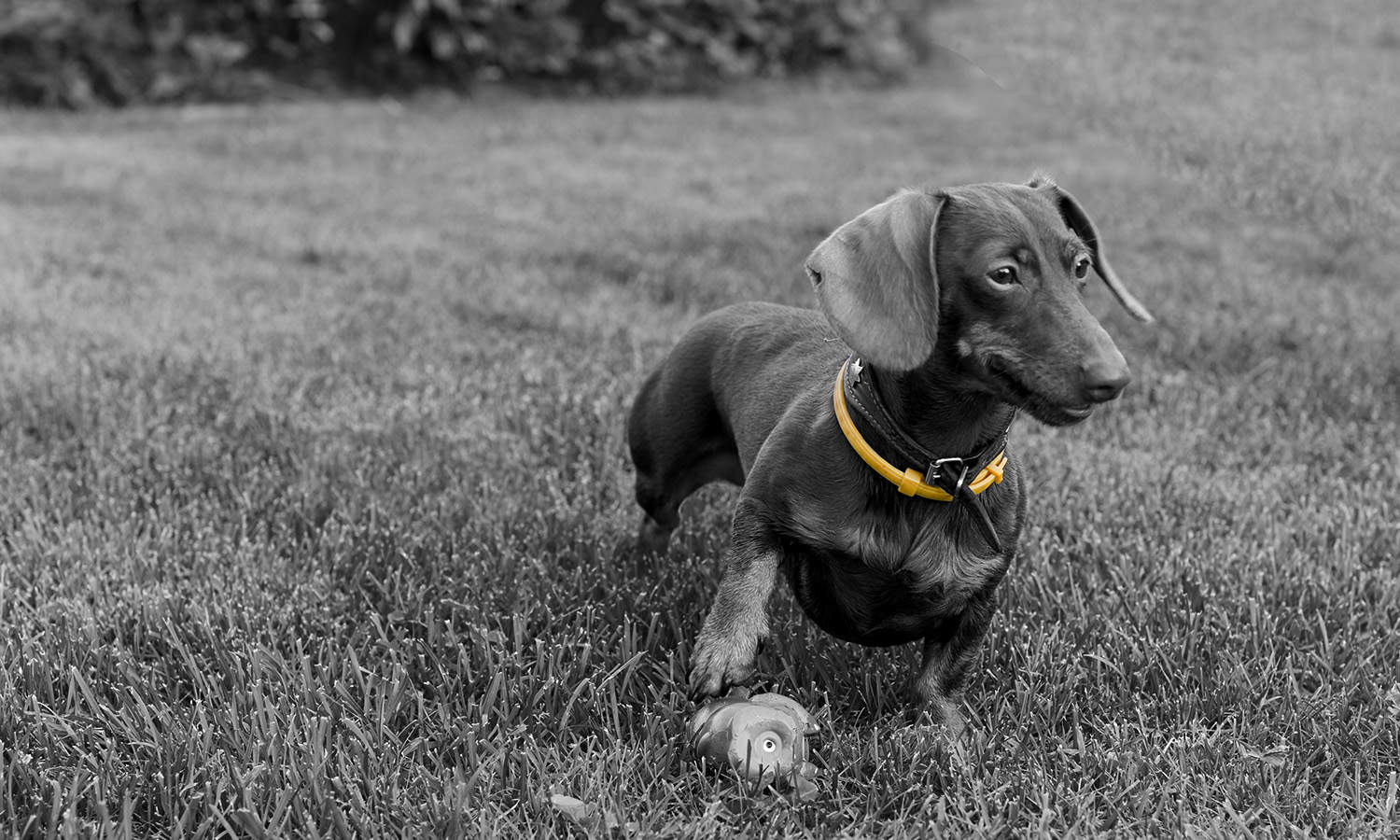Leading-Edge PLDA: Minimizing Disk Herniation Risks in Dogs

Pets play a special role in our lives, offering companionship, comfort, and joy. That's why VSCS is committed to providing groundbreaking procedures such as Percutaneous Laser Disk Ablation (PDLA) to maintain their comfort and well-being.

What is PLDA?
Percutaneous laser disk ablation (PLDA) is a minimally-invasive procedure developed at Oklahoma State University to reduce the risk of recurrent Intervertebral Disk Herniation (IVDH) in dogs.
Dogs experiencing an IVDH episode have a 20 to 50% risk of recurrence. Some breeds, such as the dachshund, have a 25% lifetime risk of disk herniation. Veterinary PLDA—adapted from a human procedure—reduces the recurrence risk to a mere 4.5%. This is achieved by removing the central part of the intervertebral disk (the nucleus pulposus) through ablation, ensuring it cannot rupture in the future.
The procedure can be performed on dogs who have had a previous episode of IVDH that has been surgically or medically managed or as a preventive measure for at-risk dogs.
How Is PLDA Performed?
PLDA is performed on the thoracolumbar spine (T10-11 through L5-6 disk spaces) under general anesthesia. In dogs, herniation occurs most often in these nine disk spaces. Our approach is to target those with a 1% or greater incidence of herniation.
We do not currently perform the procedure on the cervical spine. If your dog has experienced a cervical episode only and not a thoracolumbar episode, a procedure performed on the thoracolumbar spine may still be beneficial.
Is My Dog a Candidate?
For your dog to be a candidate for PLDA, the following criteria must be met:
- Your dog must be recovered from a previous episode of a disk herniation. If your dog has recently undergone surgery or has just been diagnosed with a suspected disk herniation that can be managed medically, we recommend at least four weeks of crate rest and minimal activity to allow for complete recovery.
- A TIME ZERO visit with your regular veterinarian or specialist is required. At this visit, your dog must be neurologically static, off pain medications and muscle relaxers, have no cold laser therapy or acupuncture treatment, and be pain-free when palpated down the spine and neck. Your veterinarian must document their findings in the medical record.
- Your dog will then need a SECOND RECHECK examination with your regular veterinarian or specialist. The second recheck must be performed at least two weeks after the TIME ZERO visit with similar findings: Your dog must be neurologically static, still not receiving any pain medications, have no cold laser therapy or acupuncture treatment, and be pain-free when palpated down the spine as well as in the neck. Again, your veterinarian must document their findings in the medical record.
- Your dog must be free of any possible skin infection (bacterial pyoderma). If your dog is prone to skin disease, allergies, itching, or severe redness, please have your vet check the skin at the TIME ZERO and SECOND RECHECK appointments. This will allow enough time for the condition to be treated prior to surgery. Should your veterinarian see red bumps on the skin, this indicates that a secondary bacterial infection is likely present, and must be treated with antibiotics before arriving for surgery. If this concern is present for your dog, please have your veterinarian contact us so that we can discuss the condition and plan for a successful trip to VSCS.
Please note: If at any point between the TIME ZERO visit and the SECOND RECHECK examination your dog experiences pain or needs pain medication, we will need to restart the process. This also applies to the time between your dog’s second recheck and their consultation with us.

Why Choose VSCS for Your Dog’s PLDA Procedure?
VSCS veterinarian Dr. Danielle Dugat has been performing PLDA since 2010. She gained experience with the technique during her residency, working alongside her mentor, Dr. Ken Bartels, who pioneered the procedure at Oklahoma State University.
Dr. Dugat has since contributed two research studies and a book chapter on PLDA, advancing the knowledge base on this innovative technique and enabling more pets to experience its benefits.
The PLDA Timeline: What To Expect
Here’s an overview of the treatment process:
- Consultation: Treatment will begin on your scheduled appointment day with a thorough consultation with Dr. Dugat, including a physical exam, any required bloodwork for anesthesia, and a detailed discussion about the PLDA procedure. You do not have to withhold food for this consultation visit (unless our team tells you to do so directly).
- Post-Consultation: For patients traveling to VSCS: After your session with Dr. Dugat, your pet can return to your hotel with you or stay overnight at VSCS.
- Surgery Day: You’ll drop off your pet in the morning and return that afternoon to pick them up once the procedure and post-op monitoring is complete.
For patients traveling to VSCS: If your return home involves a long drive or flight, you may want to consider an overnight stay at a nearby hotel the night after the procedure for your pet’s comfort—allowing a period of rest and recuperation before traveling. - Recovery: Post-procedure, your pet will require two weeks of strict exercise restriction and crate confinement. You will receive one week of pain medications but will only need to administer medications for three days. A sedative can be prescribed for the crate confinement period if needed. On the third week after surgery, you will begin gradually and gently resuming your pet’s usual activities. We will provide detailed aftercare instructions.
Costs & Logistics
The average cost of the PLDA procedure is $2,500, covering consultation, hospitalization, surgery, anesthesia, and post-surgery medications.
For patients traveling to VSCS, several pet-friendly hotels are located conveniently nearby. We’ll be happy to provide details about hotel options upon request. Check out our Pet Friendly Hotel recommendations.
If flying is convenient, American Airlines offers direct flights to Stillwater (airport code SWO), connecting through Dallas, TX. Alternatively, Tulsa International Airport and Will Rogers World Airport in Oklahoma City are each about an hour's drive from our clinic.
Pet owners, please call us at (405) 338-7703. Referring veterinarians, please complete our referral form.

